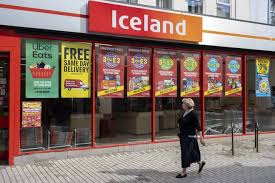Understanding the Recent Iceland Store Closures

Introduction
The recent announcement of store closures by Iceland, a popular UK frozen food retailer, has raised concerns among communities and employees. The importance of this topic lies in its potential impact on local economies, employment rates, and consumer access to affordable food. Iceland’s decision reflects broader trends within the retail sector, including rising operational costs and changing consumer behaviour.
Details on Store Closures
Iceland Foods Ltd, known for its extensive range of frozen goods, has announced the closure of several locations across the country. Reports indicate that up to 40 stores are set to shut down in the coming months due to diminishing sales and increased competition from other retailers. This decision comes after the company experienced a drop in revenue, with a report showing a 6% decline in sales over the previous year as households tighten their budgets amid a cost-of-living crisis.
The closures are predominantly occurring in areas where the company has struggled to compete effectively, especially in town centres where customers are shifting towards more convenient purchasing options, including online shopping. Iceland’s CEO, Richard Walker, highlighted the challenge posed by the rising costs of energy and supply chain issues, which have forced many retailers to rethink their operations.
Impact on Communities and Employees
The implications of these closures are multifaceted. For local communities, the loss of an Iceland store means fewer options for affordable groceries, which is particularly concerning for families on a tight budget. Additionally, the affected employees, some of whom have been with the company for many years, now face an uncertain future. The company has stated that they will support staff relocating to nearby stores or provide redundancy packages where necessary.
Conclusion
In summary, the announced Iceland store closures signify a troubling trend in the retail sector that reflects wider economic challenges in the UK. While the company communicates its intention to adapt to the current market, the immediate effects on jobs and community services cannot be overlooked. As the retail landscape continues to evolve, stakeholders, including local governments and community leaders, will need to work together to address the consequences of these closures. Looking ahead, it is crucial for consumers to be aware of these changes and consider their shopping habits, especially as local economies fluctuate amidst such transitions.





